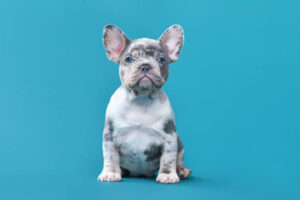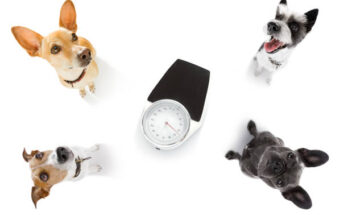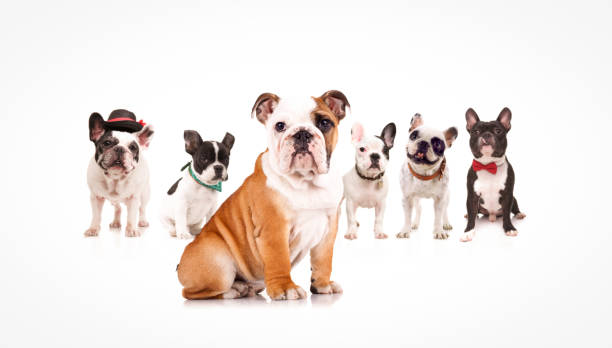As a proud owner of a magnificent Blue French Bulldog for the past 15 years, I’ve witnessed firsthand the unique characteristics and quirks of these wonderful creatures.
From their playful antics to their unwavering loyalty, Frenchies hold a special place in our hearts.
However, one question that may arise for many owners, including myself, is: “Why is my Blue French Bulldog turning brown?”
It’s essential to understand that coat changes in French Bulldogs, particularly those with a blue hue, are not uncommon.
While the initial allure of a blue coat may captivate us, it’s vital to recognize that this coloration can evolve over time due to various factors.
7 possible causes for a Blue French Bulldog turning brown – You Should Know
- Genetic Factors
Blue French Bulldogs inherit a dilute gene that affects the production of melanin, the pigment responsible for coat color.
Over time, genetic factors can influence melanin production, leading to changes in the intensity and hue of the coat, sometimes resulting in a brownish tint.
- Sun Exposure
Excessive exposure to sunlight can cause bleaching of the fur in Blue French Bulldogs, leading to a lighter or brownish appearance.
UV radiation can break down the pigments in the hair, causing discoloration over time.
- Nutritional Deficiencies
A lack of essential nutrients in your Frenchie’s diet can impact the health and vibrancy of their coat.
Poor nutrition can lead to dullness and discoloration of the fur, including a shift towards a brown hue.
- Environmental Factors
Factors such as pollution, dust, and other environmental contaminants can accumulate in your Frenchie’s fur, leading to a dull appearance and potentially causing the blue coat to turn brown over time.
- Hormonal Changes
Hormonal fluctuations, such as those occurring during puberty, pregnancy, or as a result of medical conditions, can impact melanin production and contribute to changes in coat color.
These hormonal shifts may manifest as a brownish tint in the fur of Blue French Bulldogs.
- Age
As Blue French Bulldogs age, their coat may naturally change color and texture.
The aging process can affect melanin production and lead to alterations in the appearance of the coat, including a shift toward a brown hue.

- Grooming Practices
Improper grooming techniques or the use of harsh grooming products can damage the hair shaft and affect the overall health and appearance of the coat.
Over time, this damage may contribute to a loss of color intensity and result in a brownish tint in Blue French Bulldogs with blue coats.
Understanding these potential causes can help owners better care for their Blue French Bulldogs and address any changes in coat color promptly and effectively.
Regular grooming, proper nutrition, and minimizing exposure to environmental stressors can help maintain the health and vibrancy of your Frenchie’s coat for years to come.
Best 5 Solutions to Help Avoid Your Blue French Bulldog From Turning Brown:
- Provide Adequate Sun Protection
Limit your Frenchie’s exposure to direct sunlight, especially during peak UV hours.
Provide ample shade outdoors, use pet-safe sunscreen on exposed areas of skin, and consider protective clothing or accessories to shield their coat from UV rays.
- Maintain a Nutritious Diet
Ensure your Blue French Bulldog receives a balanced and high-quality diet rich in essential nutrients, including proteins, vitamins, and omega-3 fatty acids.
Opt for premium dog food brands or consult with your veterinarian to create a customized nutrition plan tailored to your Frenchie’s specific needs.
Also Read,
- Why do Dogs Jump on Strangers – Causes and Solution
- Are Fluffy French Bulldogs Healthy? A Complete Guide 2024
- Regular Grooming and Bathing
Implement a consistent grooming routine to keep your Frenchie’s coat clean, healthy, and vibrant.
Brush their fur regularly to remove loose hair, dirt, and debris, and bathe them with a gentle, dog-friendly shampoo and conditioner as needed.
Proper grooming helps prevent matting, minimizes discoloration, and promotes overall coat health.
- Environmental Control
Minimize exposure to environmental pollutants, dust, and other contaminants that can accumulate in your Frenchie’s fur and contribute to discoloration.
Keep indoor spaces clean and well-ventilated, and consider using air purifiers or filters to reduce airborne particles that may affect coat color.
- Regular Veterinary Check-ups
Schedule routine veterinary appointments for your Blue French Bulldog to monitor their overall health and address any underlying medical issues promptly.
Your veterinarian can offer valuable insights and recommendations for maintaining your Frenchie’s coat health and preventing color changes due to hormonal imbalances or other health concerns.
By implementing these solutions, you can help preserve the beauty and vibrancy of your Blue French Bulldog’s coat and enjoy many years of companionship with your beloved furry friend.
FAQs about Why Is My Blue French Bulldog Turning Brown
Q: Why is my Blue French Bulldog’s coat turning brown?
A: Coat color changes in Blue French Bulldogs can be influenced by various factors, including genetics, sun exposure, nutritional deficiencies, hormonal changes, age, and grooming practices.
Q: Can I prevent my Blue French Bulldog’s coat from turning brown?
A: While some factors contributing to coat color changes may be beyond your control, you can take steps to minimize the risk. Providing sun protection, maintaining a nutritious diet, implementing a regular grooming routine, controlling environmental factors, and scheduling regular veterinary check-ups can help prevent or reduce the likelihood of your Frenchie’s coat turning brown.
Q: Is it normal for Blue French Bulldogs to experience changes in coat color as they age?
A: Yes, it’s normal for Blue French Bulldogs, like many other dog breeds, to undergo changes in coat color as they age.
Factors such as genetics, hormonal changes, and environmental influences can contribute to alterations in the appearance of their fur over time.
Q: Can grooming practices affect my Blue French Bulldog’s coat color?
A: Yes, improper grooming techniques or the use of harsh grooming products can damage the hair shaft and affect the overall health and appearance of your Frenchie coat.
Regular grooming with gentle tools and pet-friendly grooming products can help maintain coat health and prevent discoloration.
Q: Should I be concerned if my Blue French Bulldog’s coat starts turning brown?
A: While changes in coat color may be alarming, especially if they occur suddenly or are accompanied by other symptoms, they are not always cause for concern.
However, if you notice significant changes in your Frenchie’s coat color or overall health, it’s advisable to consult with your veterinarian to rule out any underlying medical issues.
Q: How can I determine if my Blue French Bulldog’s coat color change is due to a health problem?
A: If you’re unsure about the cause of your Frenchie’s coat color change or if it’s accompanied by other symptoms such as hair loss, skin irritation, or behavioral changes, it’s best to seek veterinary advice.
Your veterinarian can perform a thorough examination, run diagnostic tests if necessary, and provide appropriate treatment or management recommendations based on their findings.
Conclusion
Observing changes in your Blue French Bulldog’s coat color can be concerning, but it’s essential to recognize that it’s a natural part of their genetic makeup and aging process.
By understanding the factors contributing to these changes and implementing proper care and nutrition, you can help maintain the health and beauty of your Frenchie’s coat for years to come.
So, embrace the uniqueness of your furry companion, whether they’re blue, brown, or somewhere in between, and continue to cherish every moment together.
Also Read,




